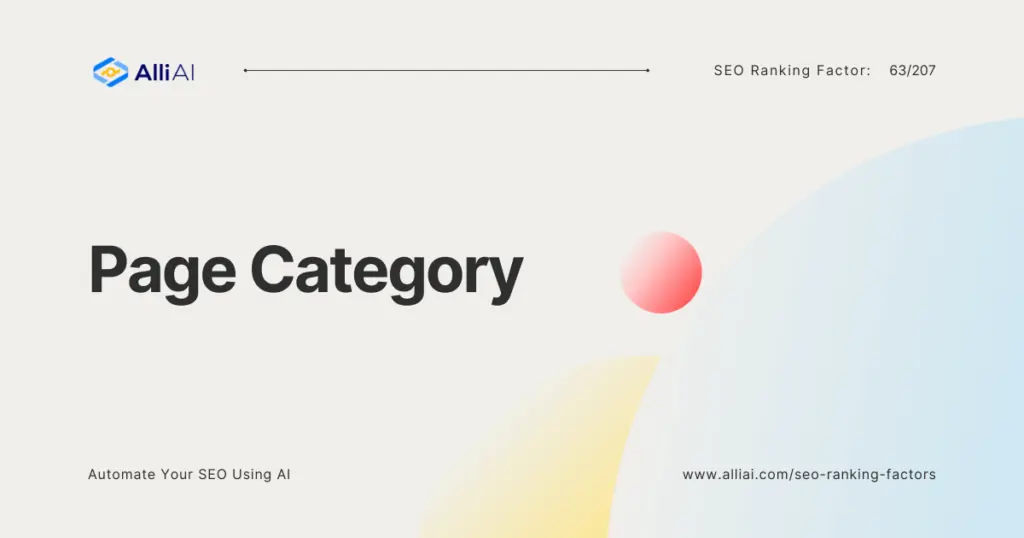What is Page Category?
Page Category refers to the classification or organization of webpages within a website according to their content. This categorization helps search engines understand the context and relevance of pages, making it easier to index them appropriately. Think of a website as a large department store. Just as products are organized into departments (electronics, clothing, gardening) for shoppers to easily find what they’re looking for, webpages are grouped into categories for search engines and users to navigate the website more efficiently.
Why is Page Category Important in SEO?
Page Category is fundamental in SEO for several reasons. Firstly, it enhances user experience by making information easy to find and navigate, which is a key factor search engines consider when ranking websites. Furthermore, well-defined categories can help increase the topical relevance of a website, encouraging search engines to rank the site higher for related search queries. Categories also aid in creating a logical site structure, which is essential for effective indexing and crawling by search engines.
How Page Category Affects SEO
1. Improved Site Architecture: A logical hierarchy made through categorizing pages improves site architecture, making it easier for search engines to crawl and index content. This clarity can lead to better visibility and higher rankings.
2. Enhanced User Experience: By organizing content into clear, understandable categories, users can navigate your website more efficiently, reducing bounce rates and increasing the likelihood of engagement and conversion.
3. Increased Page Relevance: Categories help search engines understand the context and topical relevance of pages, which could improve rankings for specific keywords associated with those categories.
– Websites with a well-structured page hierarchy are 50% more likely to achieve higher search rankings compared to those without. (Source: Moz)
– Enhanced user experience, as a result of effective categorization and site structure, can increase website engagement rates by up to 30%. (Source: HubSpot)
FAQ
How do you decide on the best page categories for your website?
Choosing the best categories involves understanding your audience and the primary topics of your content. Conduct keyword research to identify how users search for your content, and organize your categories around these topics for maximum relevance and accessibility.
Can too many categories negatively affect SEO?
Yes, having too many categories can dilute your website’s topical relevance and complicate its structure, making it harder for search engines to crawl and index. It’s best to stick to a limited number of categories that accurately represent your content.
Should each page category have its own SEO strategy?
Absolutely. Since each category likely targets a different set of keywords and themes, tailoring your SEO strategy to the specifics of each category can enhance its visibility and effectiveness.
Conclusion
The importance of Page Category in SEO cannot be understated. It plays a pivotal role in enhancing site structure, user experience, and content relevance—all of which are critical factors in achieving higher search engine rankings. By meticulously organizing your website content into well-thought-out categories, you not only make your website more appealing to search engines but also provide a better browsing experience for your visitors. Remember, the goal of SEO is not just to attract traffic but to provide value and relevance to that traffic. Effective use of page categories is a step towards achieving this goal, ensuring your website stands out in the crowded digital space.






